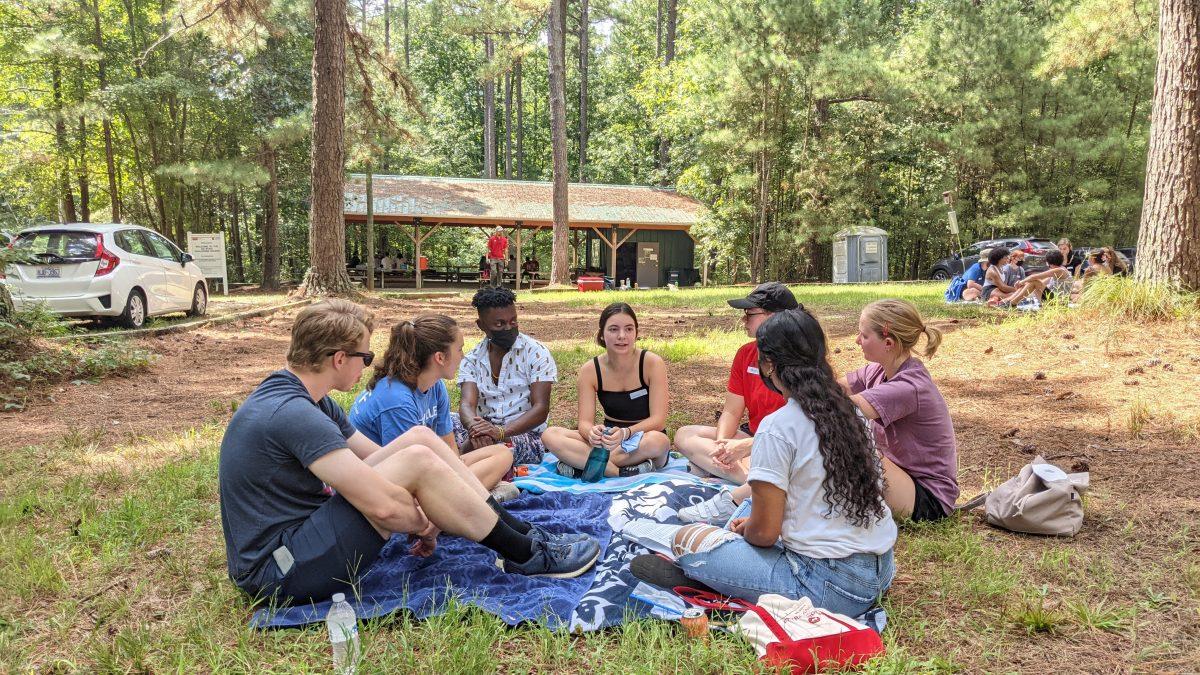Campus Conversations Project (CCP) bridges gaps within the Wolfpack by teaching students to use powerful and respectful dialogue when having civic conversations.
CCP started in the spring of 2020. Dr. Scott O’Leary, residential learning academic director and Honors and Scholars Village mentor, oversees CCP.
“[It’s] a sustained initiative on campus where students can have these dialogues with each other on issues that they may be hesitant to talk about helps develop an empathy and understanding of where people are coming from,” O’Leary said. “We really want to bring people who have different viewpoints together.”
CCP partners with organizations on campus to take part in its discussions. Some of the partnerships include the Honors Village, Living and Learning Communities, the Wicked Problems/Wolfpack Solutions course, Parks Scholars, Goodnight scholars and NC State University Libraries.
According to O’Leary, getting involved with CCP has become easier for students as the organization has grown. Student groups are able to host meetings if they wish to get involved, and anyone can go through the process of becoming a conversation facilitator. A main part of facilitator training is navigating how to have a conversation around tricky issues.
“The model is so student-focused, all the students facilitate the actual conversations,” O’Leary said. “The easiest way to get involved is to come to a conversation. … That’s how we want to build the model for the program.”
Dr. Janice Odom, director of The Caldwell Fellows and another overseer of CCP, said she wants every student to be exposed to CCP.
“Ideally, Campus Conversations will be part of the identity of NC State, and every freshman will be exposed to CCP,” Odom said. “That’s how we can make change — by exposing as many people as we can and hoping they can have a positive influence on others”
Along with the effort put into the new initiative, O’Leary credits good timing for the rapid growth of CCP. With students starting coming back to school in person, the desire for initiatives like CCP skyrocketed. Focusing on giving those who participate in discussions and future facilitators the resources they need to grow and improve their skills has been the key to growth.
“We want to be strategic and grow, but we want to do it in a way that keeps the students centered and focused on their experience,” O’Leary said. “We want to do things in a sustainable way, with various groups on campus that see the need and have the desire to have these conversations.”
The upcoming midterm elections have the nation on edge, especially during a time of political polarization in the country, O’Leary said. CCP allows the Wolfpack to hear out perspectives they may have not heard before, learn about the background of others and share empathy that begins to bridge divides.
“Things don’t start and end at an election,” O’Leary said. “People are hesitant to share their thoughts, oftentimes for good reasons. We need to focus on giving people the space and confidence to be able to share. We want CCP to contribute to a shift in culture. When you hear somebody say, I’m in a very different position from you, and you let them talk about it, you may still totally disagree, but hopefully you can at least understand where that person is coming from and maybe your views might shift on some things.”
Arushee Kamra, a second-year studying biomedical engineering and health science engineering, is a Caldwell Fellow Scholar and a student facilitator for CCP. Kamra started her role as a student facilitator at the beginning of the semester.
“The best part is getting to see the different perspectives and backgrounds of people,” Kamra said. “It’s fun to watch. To someone that is not interested and doesn’t really want to hear different opinions, I would just tell them to give it a chance, you might be surprised.”
Learn more about Campus Conversations on their website.













